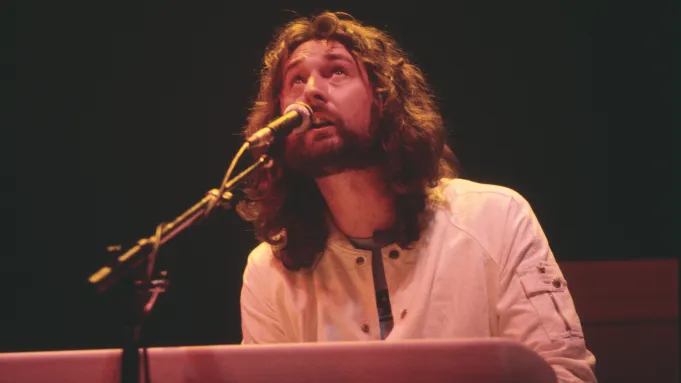
Rick Davies: the quiet fulcrum of Supertramp
Rick Davies was pianist with a bluesman’s left hand and a sardonic baritone who built a global phenomenon on odd bedfellows: Wurlitzer bark and saxophone sheen; prog-rock architecture and pop instinct; his earthier grit set against Roger Hodgson’s high, airy tenor. Across five decades he was the band’s only constant, its principal organizer and de facto musical director, and one of rock’s most distinctive keyboard stylists. Davies died on September 6, 2025, at his home in East Hampton, Long Island, from complications of multiple myeloma. He was 81.
Early years in Swindon
Richard Davies was born in Swindon, Wiltshire, a working-class railway town in the west of England. His father, Dick, was a merchant seaman; his mother, Betty, worked as a hairdresser. It was not a musical household, but the gift of a radiogram and an old Gene Krupa record—“Drummin’ Man”—sparked his fascination with rhythm. He started out not on piano but on drums, making a kit out of biscuit tins and practicing tirelessly.
By 12, Davies was playing snare in the British Railways Staff Association Brass and Silver Jubilee Band. The regimented style of brass-band percussion—the clipped strokes, the march rhythms—would later echo in his piano playing, where he often treated the left hand like a drummer’s kick and snare.
As a teenager, he formed his first group, Rick’s Blues, with friends from school. For a time, the lineup included Raymond O’Sullivan, who would later find pop success as Gilbert O’Sullivan. The group played R&B covers and blues standards in local halls, a formative experience that gave Davies his enduring love of American blues and jazz.
After finishing school, Rick Davies trained as a welder at Swindon’s locomotive works, but the music itch refused to leave. By the mid-1960s he had switched focus from drums to keyboards, inspired by Ray Charles, Fats Domino, and Memphis Slim. He developed a fondness for the Hammond organ and electric piano, both of which would become central to his style.
The Munich connection and formation of Supertramp
In 1966, Rick Davies joined the Lonely Ones, later renamed the Joint, who relocated to continental Europe. They earned modest success recording music for German films, but the real turning point came in Munich, where Davies met Stanley August Miesegaes, a wealthy Dutch businessman and music lover. Known as “SAM,” Miesegaes became Davies’s patron, funding his living expenses and encouraging him to form his own group.
Returning to London, Davies placed an ad in Melody Maker in 1969. One of the first to respond was Roger Hodgson, a young guitarist and songwriter with a high, ethereal voice. Though temperamentally and musically different—Davies grounded and bluesy, Hodgson whimsical and melodic—their combination was compelling.
Initially called Daddy, the group soon changed its name to Supertramp, borrowing from W. H. Davies’s book The Autobiography of a Super-Tramp. With SAM’s financial support, the band could rehearse extensively and experiment without worrying about commercial pressures, a rare luxury in the late 1960s.
Early albums: searching for a sound
Supertramp’s debut album, Supertramp (1970), showcased an ambitious blend of progressive rock, folk, and psychedelia. Dark and sprawling, it failed to make a commercial dent. Its follow-up, Indelibly Stamped (1971), was more direct, filled with rock numbers and bluesier inflections. Still, success eluded them, and SAM withdrew his support.
The band nearly collapsed, but Rick Davies persevered. He rebuilt the lineup, adding saxophonist John Helliwell, bassist Dougie Thomson, and drummer Bob Siebenberg. With Hodgson still on board, this classic five-piece lineup was in place by 1973. What followed was a golden run.
Crime of the Century (1974): the breakthrough
Crime of the Century marked Supertramp’s international breakthrough. The album balanced grand, symphonic arrangements with hook-laden songs, crystallizing the Davies-Hodgson duality. Hodgson contributed soaring ballads like “Dreamer” and “Hide in Your Shell,” while Davies anchored the set with grittier, blues-steeped numbers such as “Bloody Well Right” and the epic “Rudy.”
The record’s production, overseen by Ken Scott (of Beatles and Bowie fame), gave Supertramp a sleek, cinematic sound. Davies’s Wurlitzer electric piano was central—biting, rhythmic, unmistakable. The album became a hit in the UK and Canada and later gained traction in the U.S., establishing the band as a serious force.
Crisis? What Crisis? (1975) and Even in the Quietest Moments… (1977)
Crisis? What Crisis? was recorded under pressure to capitalize on their momentum. While less cohesive, it contained gems such as Davies’s cynical “Ain’t Nobody But Me” and Hodgson’s tender “Lady.”
Even in the Quietest Moments… took the band to higher ground, literally—recorded partly in the Rocky Mountains of Colorado. Hodgson’s “Give a Little Bit” became a worldwide hit, while Davies offered one of his most enduring ballads, “From Now On,” blending resignation and warmth. The album solidified Supertramp’s reputation for mixing prog’s sophistication with pop accessibility.
Breakfast in America (1979): global domination
Supertramp’s crowning achievement was Breakfast in America. Recorded in Los Angeles, it distilled their quirks into pure pop perfection. Hodgson’s “The Logical Song,” “Take the Long Way Home,” and “Breakfast in America” became staples of late-’70s radio. Rick Davies countered with “Goodbye Stranger,” one of his signature vocals, and the lush “Oh Darling.”
.
.
The contrast between Hodgson’s idealism and Rick Davies’s grounded realism was never sharper. The album sold more than 18 million copies worldwide and won two Grammy Awards. Suddenly, Supertramp were global superstars, filling arenas from Paris to Los Angeles.
Famous Last Words (1982) and Hodgson’s departure
Success strained the Davies-Hodgson partnership. By …Famous Last Words…, their differences were irreconcilable. Hodgson left in 1983 to pursue a solo career, leaving Davies as the band’s sole leader.
The transition was momentous. Many assumed Supertramp would fold without Hodgson, but Davies, determined and pragmatic, carried the name forward.
A new era: 1980s and beyond
Rick Davies led a retooled Supertramp into the mid-1980s with Brother Where You Bound (1985), a politically charged, musically ambitious album. Its 16-minute title track reflected Cold War anxieties, while “Cannonball” became a Top 30 hit, showcasing Davies’s command of groove and arrangement.
The follow-up, Free as a Bird (1987), embraced contemporary pop and electronic influences. Though less successful, it contained “I’m Beggin’ You,” which topped the U.S. dance charts—an unexpected achievement for a rock veteran.
By the 1990s, Supertramp was largely dormant, but Davies revived the band with Some Things Never Change (1997), a return to classic form, and Slow Motion (2002), which leaned more heavily on jazz influences. These albums pleased longtime fans and demonstrated Davies’s unwillingness to rest on nostalgia alone.
Tours, illness, and later life
Supertramp’s 2010 “70-10 Tour” celebrated the band’s forty-year history. It was a triumph, with Davies leading a tight, polished ensemble through decades of material. Plans for further tours were derailed in 2015, when Davies was diagnosed with multiple myeloma, forcing him to cancel shows.
Despite the illness, Rick Davies remained musically active in smaller settings. Settled in East Hampton, Long Island, with his wife Sue—who also managed Supertramp—he led Ricky & the Rockets, a local R&B outfit that played intimate gigs at venues like the Stephen Talkhouse. Stripped of spectacle, these performances revealed the same grounded musician who once played Swindon halls: a man happiest at the keyboard, driving a band with groove and wit.
Style and influence
Rick Davies’s musicianship was distinctive. His use of the Wurlitzer electric piano gave Supertramp much of its sonic identity. Unlike many progressive-rock keyboardists who favored flamboyant solos, Davies prioritized rhythm and texture. His left hand often acted like a bassist or drummer, locking into grooves, while his right hand added gospel inflections, blues riffs, and jazz voicings.
Vocally, he provided a counterweight to Hodgson. Where Hodgson’s tenor was angelic and yearning, Davies’s baritone was earthy, ironic, and sometimes sardonic. Together, they embodied two poles of human experience—hope and resignation.
Rick Davies’s lyrics often skewered everyday frustrations and the absurdities of modern life. Songs like “Bloody Well Right” and “Just Another Nervous Wreck” delivered dry humor, while “From Now On” and “Goodbye Stranger” revealed warmth and complexity.
His influence can be traced in later bands that used piano and electric piano as central instruments—Keane, Ben Folds Five, and even elements of Coldplay owe something to the Davies approach. His integration of jazz harmony into rock songcraft also paved the way for acts seeking sophistication without alienating mainstream audiences.
Legacy
Supertramp sold more than 60 million albums worldwide. Their songs continue to stream in the tens of millions, feature in films, and soundtrack commercials. Rick Davies, though less flamboyant than some contemporaries, left an indelible mark. His commitment to craft and arrangement ensured that Supertramp’s music remains fresh decades later.
.

.
Band politics and business disputes often swirled around Supertramp’s legacy, but Davies’s role was clear: he was the glue, the architect, the one who kept the sound intact. Without him, there would have been no Crime of the Century, no Breakfast in America, no distinctive blend of wit, melancholy, and grandeur.
Final years and death
In his later years, Rick Davies lived quietly with Sue in East Hampton. Friends described him as modest, wry, and devoted to music even when his health faltered. He performed locally when able and kept in touch with fans through music rather than interviews or publicity.
Rick Davies died on September 6, 2025, aged 81. Tributes hailed him as one of rock’s most distinctive keyboardists and an unsung architect of 1970s pop. For many, the memory of Rick Davies is inseparable from the sound of a Wurlitzer electric piano chiming across a car radio, turning the everyday into something cinematic.
Why Rick Davies mattered
For listeners who grew up with FM radio’s golden age, Supertramp’s records were not background—they were texture and architecture, a language of keyboards and reeds that made the studio itself feel like an instrument. Davies was the architect. He built songs around touch and time: the way a Wurlitzer chord lands just behind the beat, the tight snare on two and four, the dry humor in a line that could be read as either resignation or steel.
Few bands of the 1970s welded prog’s craft to pop’s need with such consistency. In song after song, Davies proved that complexity and immediacy weren’t enemies. His progressions could twist; his forms could stretch; his chords could slide unexpectedly. But there was always that groove—the drummer’s mind at the piano—keeping the center of gravity clear.
And beyond the records, there was the way he held a band together. Supertramp’s classic lineup was a delicate chemistry that many groups never master; Davies marshaled it with cues, charts, and quiet authority. When Hodgson left, he carried the project with dignity. When illness struck, he scaled back but never abandoned the stage.
Rick Davies’s legacy is craft, sound, and feel—qualities that outlast fashion. His songs continue to resonate because they capture both the absurdity and poignancy of ordinary life. He may never have sought stardom, but in shaping Supertramp’s singular sound, he gave generations of listeners a soundtrack to their own contradictions.
Rick Davies is survived by his wife, Sue, who managed Supertramp for decades, and by the enduring music that made his name synonymous with a very specific—and very beloved—sound. In the end, it wasn’t the myth of the “super-tramp” that defined him but rather the working musician he always was: the man at the piano bench, counting off a tempo with a slight nod, making sure the band came in exactly when it should.
Check out Rick Davies on Amazon by clicking here.
Check out Supertramp on Amazon by clicking here.
If you found this interesting please share it with your friends and family, and check out some of our other articles on Musicians who Died in 2025.
.


Breakfast in America – Classic! RIP Rick!